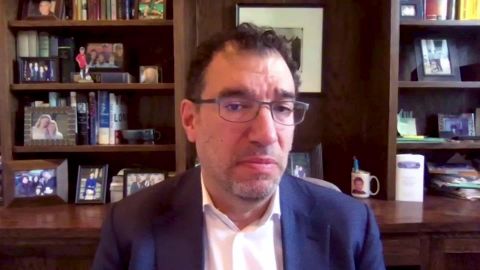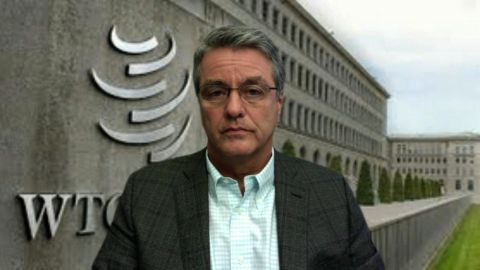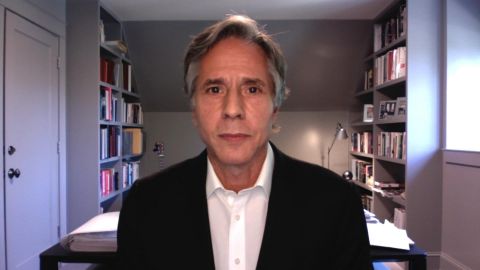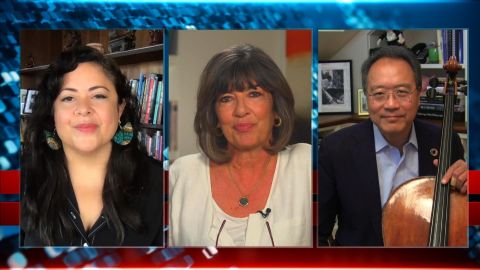Read Transcript EXPAND
CHRISTIANE AMANPOUR: Just your comment on the scale of the U.S. contraction.
ROBERTO AZEVEDO, DIRECTOR-GENERAL, WORLD TRADE ORGANIZATION: It’s pretty grim, the numbers. First of all, good evening, everyone, evening here in Geneva. I am sure that the world is going to be witnessing the greatest contraction in peaceful history since the 1930s. So, that, I think, is a given. The question is twofold. First, how deep is it going to be now? And the second one is how quickly we can recover. And those questions are difficult to answer without knowing exactly how we’re going to handle the pandemic, how quickly we can bring them into — under control. But global trade, the global economy is not going to be in a nice position for the next several months.
AMANPOUR: So, Roberto Azevedo, the United States and many were looking and hoping for a V-shaped situation, a V-shaped recovery. But we’re even seeing, in Germany, the European powerhouse, there’s been a record drop in its quarterly GDP as well of something much less than the United States, but about 10 percent. You have said we don’t know what’s going to happen because we don’t know how the pandemic is going to be managed or whether there’s going to be a second wave worse than we’re seeing right now. You also said, this is the worst since 1933. That just sends people into cataclysms of horror and despair, because we know what happened after 1933, particularly in Europe. What do you see politically happening in a painful economy?
AZEVEDO: Well, the bad news is, economically, we are talking about things which look alike, the ’30s and now. But the good side of the story, if we can call it a good side, is that the recovery can be very different. So, in back in the ’30s, and then again in the financial crisis in 2008 and ‘9, the economy was suffering from problems with its fundamentals. There were misalignments.The cylinders were not firing. The engine was bad. It was broken. But this is not necessarily the situation now. The engine was relatively fine. It wasn’t great, but it was relatively fine, until you cut the fuel line.
About This Episode EXPAND
Biden adviser Antony Blinken responds to President Trump’s tweet suggesting the November election should be delayed. The director-general of the WTO discusses a historic downturn in the U.S. economy. Yo-Yo Ma and Maya Soetoro discuss a new project asking artists what music means to them. Andy Slavitt explains his “kitchen sink” strategy for combating the COVID-19 pandemic.
LEARN MORE



